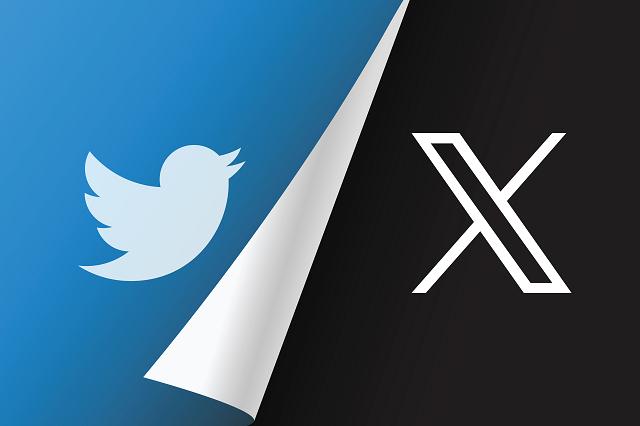Elon Musk’s rebranding from “Twitter” to “X” has raised several questions about the future of the platform, the significance of rebranding, and consumer behavior. While this rebranding came as a shock to users, will reflection show that this was a necessary strategic move for the platform in the ever-changing social media landscape? I sat down with Dr. Benjamin Wright, a senior professional lecturer of marketing at American University’s Kogod School of Business, to discuss this question and further implications, such as user experience and user preferences. Dr. Wright’s research examines social media platforms and evaluates their impacts on branding initiatives and marketing-driven organizational outcomes.
Gary Drenik: How does this compare to similar rebrands, such as HBO Max becoming MAX, etc.? What makes a company decide to up and change its name?
Dr. Benjamin Wright: The rebrand of “X” and HBO Max becoming MAX are similar but not the same, both in criticism (ironically on the platform owned and operated by Elon Musk), as well as execution. X is part of a shift for the platform that for a while now has served as a news ticker for most users. While many of X’s competitors have long been diversifying into various spaces of the Internet, X has mostly operated in a similar functionality since its inception as Twitter in 2006. This shift is part of Elon Musk’s attempt to turn X into an app that is seen as an “everything” platform that allows users to do things like banking, e-commerce, and expanded social media features. A company like X changing its name is not uncommon, as many brands have gone through different name iterations. The difference here is that Twitter and Elon Musk were so well-known before the purchase and name change. Generally, successful name changes are done early in a brand’s life cycle when the masses have not already become familiar with the brand name and brand identity.
Drenik: Why is the name significant for a brand?
Dr. Wright: Brand names help us as consumers identify several interconnected components related to the brand and its products. The name of a brand signifies the identity to consumers, and when done correctly can become a strong asset for the line of products sold by the brand. In today’s marketplace, a brand name goes beyond the logo or flashy marketing materials and truly means something to many consumers. The name allows the brand to tell a story to its consumers, and companies all over the world are trying to find ways to better connect with individuals.
Drenik: Do you think “X” will ever catch on, or will consumers always refer to it as “Twitter”?
Dr. Wright: X, or Twitter, has a vast, deeply engaged group of members. According to a recent Prosper Insights & Analytics survey, 32.3% of Gen-Z and 33.9% of Millennials report using the platform regularly. However, I do not think the large majority of users will adopt the name X when referring to the previously known Twitter platform. For one, Twitter has a very loyal group of users, and generally speaking, it is hard to change the minds of consumers on anything related to the brand, including the name. Second, name changes typically work best when a company shifts into a different space or ultimately pivots to a different set of offerings. Although X may offer some other functions, as of now it very much resembles Twitter and there is no reason for users and consumers in general to think of it differently. Additionally, name changes often feel like a bigger deal to the brand than to consumers. Whether it is department stores, streaming platforms, or social media, people today attribute brands using specific identifiers, and brand names are one of the first ways we remember companies and products.
Drenik: Are consumers not accustomed to change? When thinking about the public uproar when Coke unveiled its new recipe, does this compare at all? What is it about sudden change that makes people so uncomfortable?
Dr. Wright: Traditionally, marketing research tells us that people do not like change for various reasons such as switching costs, uncertainty, loyalty, and financially driven motivations. Today, the landscape of consumer preferences is different. For example, many consumers today are focused on companies that make them feel unique, are sustainable, have a history of social responsibility, and so on. Changing the recipe for Coca-Cola or making clothing out of a different material or different style has a real impact on the tangible consumption of a product. With regard to X, at least up until now, there really is not much of a change in most users’ experience. Ultimately, consumers dislike change because of the uncertainty of outcomes. We use brand names, logos, and other identifiers as cheat sheets for our brains to either associate or disassociate based on past experience, associations, etc. When one or more of those previously known identifiers changes, we do not know what to expect, and that makes us nervous. In the end, companies that can show the reasoning for a change and ultimately a better product, experience, etc. coinciding with the change are the ones that succeed in change.
Drenik: Is Elon Musk such a polarizing character that the fact that it is him making the change makes it more controversial?
Dr. Wright: It’s not that Elon Musk is just polarizing; it has to do more with some of the new “rules of X” that have people concerned. For example, people who have had accounts disabled are being let back on, X is changing some of the ways in which content is moderated, and currently, the conversations on the platform feel more toxic than ever. Musk has tried to incorporate some of his other ventures using the “X” component before (i.e., Space X, PayPal), and ultimately you have maybe the biggest personal brand in the world taking over one of the most contentious places on the internet, so some dramatic changes and similarly intense feedback are not surprising. It will be interesting to see if usership changes significantly after Musk’s rebranding, specifically for political news consumption. According to a recent Prosper Insights & Analytics survey, 26.9% of Gen-Z and 25.2% of Millennials report using Twitter, now X, as their primary source for political news. I do wonder, however, if these percentages will drop with the recent linkage between this platform and Musk, who is a very politically polarizing individual. Time will tell if consumers associate this same sense of mistrust in Musk’s character with his brand in future data.
Drenik: Thank you, Dr. Wright, for your time and for sharing your insights on the implications of the “X” rebrand.
Read the full article here









